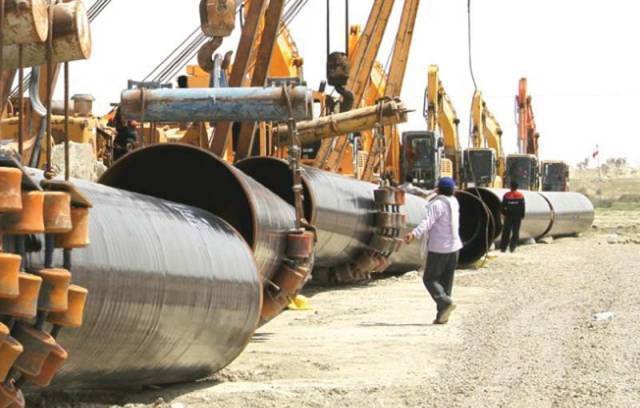“Three power import deals are expected to be inked by the two countries including supply of 100MW, 75MW and 1,000MW,” a diplomatic source said . The 1,000MW agreement could be extended to 3,000MW of electricity.
Pakistan is already importing 73MW to meet the requirement of Gwadar but payments could not be made since 2011. Now that sanctions have been removed from Iran, officials believe banking channels will be opened, paving the way for payment of outstanding bills.
The schedule of Iranian head of state’s two-day trip was disclosed during a meeting between Water and Power Minister Khawaja Muhammad Asif and Iranian Ambassador Mehdi Honardoost on Wednesday.
Rouhani’s arrival here holds great significance in the backdrop of lifting of global restrictions and current visit of Prime Minister Nawaz Sharif and Army Chief General Raheel Sharif to Saudi Arabia, which has tense relations with Iran. According to a statement issued by the Ministry of Water and Power, Minister Khawaja Asif assured the Iranian envoy that Pakistan would play a positive role in bringing peace in the region.
The two dignitaries discussed all areas of mutual interest and bilateral cooperation in the field of energy, trade, business and defence. They agreed that due to lack of economic activities in the region, incidents of terrorism were growing.
Stressing that Pakistan and Iran were enjoying close and cordial relations in different fields, Asif said Pakistan was looking forward to the visit of the Iranian president with great interest in the hope that it would lead to further deepening of bilateral ties.
Asif also highlighted the significance of the China-Pakistan Economic Corridor (CPEC), saying it was the most important artery in the region and all countries in the area should draw up plans for extracting maximum benefits out of the project.
According to officials, Pakistan will formally offer Iran during Rouhani’s visit to participate in the CPEC programme, which would bring peace and ensure vital connections among regional states.
The Iranian envoy pointed out that as curbs had been withdrawn, Tehran had a great potential for attracting investment and priority would be given to the neighbouring nations.
The ambassador insisted that friendship between Islamabad and Tehran would be reflected in joint projects and the Iran-Pakistan (IP) gas pipeline was one of the best schemes in this regard.
Officials of the Ministry of Petroleum and Natural Resources said the Iranian president would push Pakistan to implement the IP pipeline project, which had earlier been stalled by the sanctions on Tehran.
The pipeline was to start running in December 2014 but work could not kick off. Pakistan had tried to engage China and Russia to help implement and finance the pipeline but to no avail. Even Iran offered to finance the project but after formation of the new government there the plan was shelved.
Now, hopes are high that the two countries will be able to press on with the plan. Pakistan has already awarded a contract for laying a liquefied natural gas pipeline and building a terminal in Gwadar to a Chinese company. This pipeline will be extended to the Iranian border to connect to the IP pipeline.
Officials said the Iranian president would take up the issue with Pakistan as the government had earlier given a commitment to starting work on the project after removal of sanctions.
If Pakistan did not push ahead with the project, it would have to pay penalties running into millions of dollars, which could strain ties between the two countries.
Read : Iran-Pakistan gas pipeline project: Succumbs to US Arab political pressure






